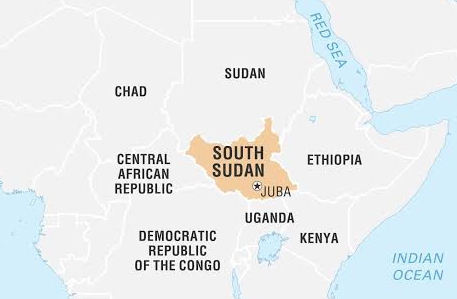Authorities in South Sudan have apprehended a suspected Karimojong warrior involved in firearms trafficking into the Karamoja sub-region. The unidentified suspect believed to be from Karenga district, was arrested in Budi County in the Eastern Equatorial region of South Sudan while attempting to purchase guns for trafficking into Karenga district.
Felix Mark Lochale, the LC5 Chairperson for Karenga district, confirmed that he received a message from the Budi County commissioner informing him of the arrest of the Ugandan national involved in gun trafficking. Lochale stated that they are awaiting the repatriation of the suspect back to Karenga district, where he will be identified and charged before the courts of law.
He expressed concern about the high incidence of firearms trafficking in the district due to its porous border with South Sudan. This influx of firearms has complicated the efforts of district security committees to address insecurity. Lochale emphasized that they have been collaborating with South Sudan authorities to combat the illegal firearms trade and trafficking between the South Sudanese communities and the Karimojong in Uganda.
Anthony Lomuria, an Opinion Leader in Moroto district, noted that despite the government’s efforts to encourage people to surrender their firearms, the circulation of illegal guns continues due to the porous borders with neighboring armed communities.
Lomuria pointed out that many smuggled guns are buried, waiting to gauge the government’s response to insecurity. He urged the government to find effective solutions for managing the porous borders to minimize the influx of illicit firearms and break the cycle of gun violence in the region.
In 2021, during the launch of the Usalama Kwa Wote disarmament program, joint security forces promised to deploy along the Kenya and South Sudan borders to enhance security for Karimojong pastoralists and curb firearms trafficking.
However, the porous borders and the movement of pastoralists have presented challenges in differentiating between criminals and the local population they aim to protect.
URN.

